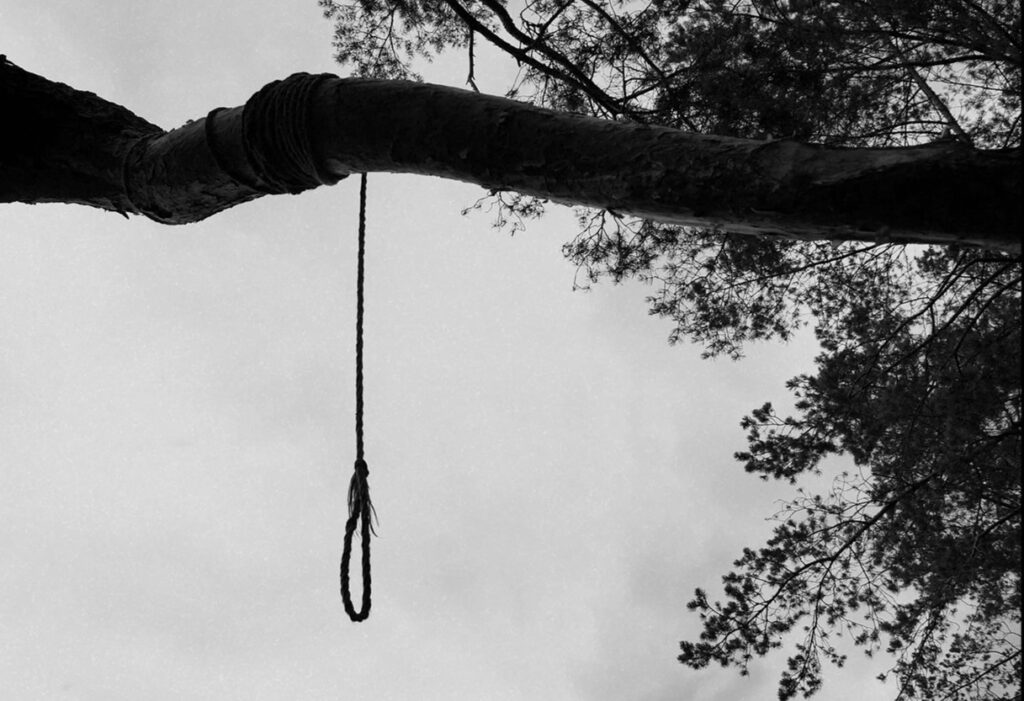‘Methuselah’ is a nightmarish reminder of history’s darkest corners, where trees are both witnesses and accomplices in violent acts. Directed and written by Nathan Sellers, this experimental film distills history’s horrors into an evocative and haunting visual experience. Its striking 4:30 aspect ratio evokes vintage cinema, yet the film’s eerie, surreal quality firmly roots it in the present, where the sins of the past continue to seep into the now.
Narrated by Jordan Mullins, whose voice imbues the film with an unsettling weight, ‘Methuselah’ opens with a recounting of the 1930 lynching of J. Thomas Shipp and Abraham S. Smith. This chilling account is delivered with emotional precision, setting the tone for what follows: a meditation on violence so deeply embedded in history that it becomes inextricable from the land itself.
The trees in Methuselah are more than passive witnesses to brutality; they are instrumental, tied to the horrors of execution and suffering. The film connects them to the wood used in electric chairs, linking the natural world to the violence that stains it. Stripped of life and color, these trees stand as haunting presences, their gnarled branches like skeletal fingers reaching out from the past.
The black-and-white visuals underscore the stark, oppressive atmosphere, and as the film progresses, color bleeds into the frame – not as a relief, but as blood-red, amplifying the horror. The subtle yet brutal score by Abby Swidler enhances the unsettling mood, building from a low hum into a force that mirrors the film’s rising tension and terror. The music amplifies the suffocating atmosphere.
Nathan Sellers’ direction and writing are both poetic and haunting, using the natural world as a powerful symbol of violence. His visual language, rich in dark tones, creates a chilling rhythm that pulls the viewer into a world where history’s horrors are inescapably alive.
The film uses experimental, surrealist techniques to provoke discomfort, delivering a powerful, unnerving message: that history and the violence it holds never truly fade. It’s a dark, poetic reflection on the interconnectedness of nature and violence. A highly recommended horror.


